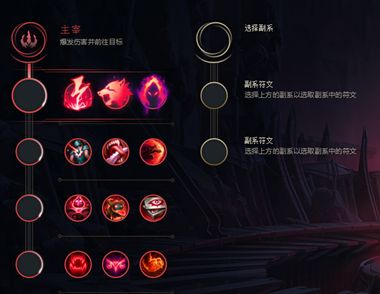gcc manual page (二)
下面是个超简单的gcc manual page (二)教程,图老师小编精心挑选推荐,大家行行好,多给几个赞吧,小编吐血跪求~
foo (a)
{
if (a 0)
return a;
}
Spurious warnings can occur because GNU CC does not realize that certain functions (including abort and longjmp) will never return.
*
An eXPression-statement or the left-hand side of a comma expression contains no side effects. To suppress the warning, cast the unused expression to void. For example, an expression sUCh as `x[i,j]' will cause a warning, but `x[(void)i,j]' will not.
*
An unsigned value is compared against zero with `' or `='.
-Wimplicit-int
Warn whenever a declaration does not specify a type.
-Wimplicit-function-declaration
Warn whenever a function is used before being declared.
-Wimplicit
Same as -Wimplicit-int and -Wimplicit-function-declaration.
-Wmain
Warn if the main function is declared or defined with a suspicious type. Typically, it is a function with external linkage, returning int, and taking zero or two arguments.
-Wreturn-type
Warn whenever a function is defined with a return-type that defaults to int. Also warn about any return statement with no return-value in a function whose return-type is not void.
-Wunused
Warn whenever a local variable is unused aside from its declaration, whenever a function is declared static but never defined, and whenever a statement computes a result that is explicitly not used.
-Wswitch
Warn whenever a switch statement has an index of enumeral type and lacks a case for one or more of the named codes of that enumeration. (The presence of a default label prevents this warning.) case labels outside the enumeration range also provoke warnings when this option is used.
-Wcomment
Warn whenever a comment-start sequence `/*' appears in a comment.
-Wtrigraphs
Warn if any trigraphs are encountered (assuming they are enabled).
-Wformat
Check calls to printf and scanf, etc., to make sure that the arguments supplied have types appropriate to the format string specified.
-Wchar-subscripts
Warn if an array subscript has type char. This is a common cause of error, as programmers often forget that this type is signed on some machines.
-Wuninitialized
An automatic variable is used without first being initialized.
These warnings are possible only in optimizing compilation, because they require data flow information that is computed only when optimizing. If you don't specify `-O', you simply won't get these warnings.
These warnings occur only for variables that are candidates for register allocation. Therefore, they do not occur for a variable that is declared volatile, or whose address is taken, or whose size is other than 1, 2, 4 or 8 bytes. Also, they do not occur for structures, unions or arrays, even when they are in registers.
Note that there may be no warning about a variable that is used only to compute a value that itself is never used, because such computations may be deleted by data flow analysis before the warnings are printed.
These warnings are made optional because GNU CC is not smart enough to see all the reasons why the code might be correct despite appearing to have an error. Here is one example of how this can happen:
{
int x;
switch (y)
{
case 1: x = 1;
break;
case 2: x = 4;
break;
case 3: x = 5;
}
foo (x);
}
If the value of y is always 1, 2 or 3, then x is always initialized, but GNU CC doesn't know this. Here is another common case:
{
int save_y;
if (change_y) save_y = y, y = new_y;
...
if (change_y) y = save_y;
}
This has no bug because save_y is used only if it is set.
Some spurious warnings can be avoided if you declare as volatile all the functions you use that never return.
-Wparentheses
Warn if parentheses are omitted in certain contexts.
-Wtemplate-debugging
When using templates in a C++ program, warn if debugging is not yet fully available (C++ only).
-Wall
All of the above `-W' options combined. These are all the options which pertain to usage that we recommend avoiding and that we believe is easy to avoid, even in conjunction with macros.
The remaining `-W...' options are not implied by `-Wall' because they warn about constructions that we consider reasonable to use, on occasion, in clean programs.
-Wtraditional
Warn about certain constructs that behave differently in traditional and ANSI C.
*
Macro arguments occurring within string constants in the macro body. These would substitute the argument in traditional C, but are part of the constant in ANSI C.
*
A function declared external in one block and then used after the end of the block.
*
A switch statement has an operand of type long.
-Wshadow
Warn whenever a local variable shadows another local variable.
-Wid-clash-len
Warn whenever two distinct identifiers match in the first len characters. This may help you prepare a program that will compile with certain obsolete, brain-damaged compilers.
-Wpointer-arith
Warn about anything that depends on the ``size of'' a function type or of void. GNU C assigns these types a size of 1, for convenience in calculations with void * pointers and pointers to functions.
-Wcast-qual
Warn whenever a pointer is cast so as to remove a type qualifier from the target type. For example, warn if a const char * is cast to an ordinary char *.
-Wcast-align
Warn whenever a pointer is cast such that the required alignment of the target is increased. For example, warn if a char * is cast to an int * on machines where integers can only be Accessed at two- or four-byte boundaries.
-Wwrite-strings
Give string constants the type const char[length] so that copying the address of one into a non-const char * pointer will get a warning. These warnings will help you find at compile time code that can try to write into a string constant, but only if you have been very careful about using const in declarations and prototypes. Otherwise, it will just be a nuisance; this is why we did not make `-Wall' request these warnings.
-Wconversion
Warn if a prototype causes a type conversion that is different from what would happen to the same argument in the absence of a prototype. This includes conversions of fixed point to floating and vice versa, and conversions changing the width or signedness of a fixed point argument except when the same as the default promotion.
-Waggregate-return
Warn if any functions that return structures or unions are defined or called. (In languages where you can return an array, this also elicits a warning.)
-Wstrict-prototypes
Warn if a function is declared or defined without specifying the argument types. (An old-style function definition is permitted without a warning if preceded by a declaration which specifies the argument types.)
-Wmissing-prototypes
Warn if a global function is defined without a previous prototype declaration. This warning is issued even if the definition itself provides a prototype. The aim is to detect global functions that fail to be declared in header files.
-Wmissing-declarations
Warn if a global function is defined without a previous declaration. Do so even if the definition itself provides a prototype. Use this option to detect global functions that are not declared in header files.










